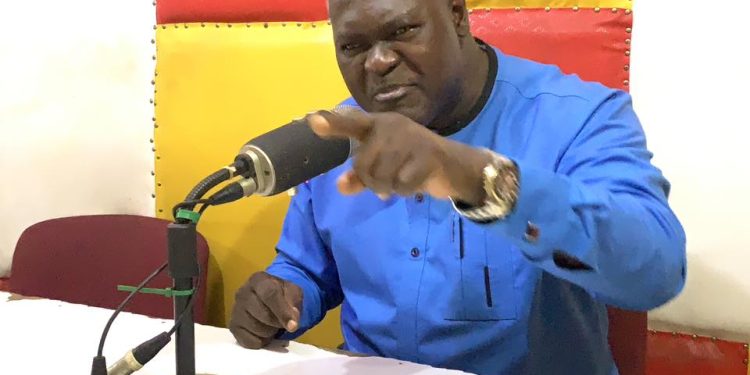For far too long, the people of Sierra Leone have heard about grand infrastructure dreams, ribbon-cutting ceremonies, and bold declarations from government officials promising transformation. Chief among these promises has been the long-anticipated Lungi Bridge — a structure that is supposed to connect the Lungi International Airport to the capital city, Freetown. But rather than witnessing the groundbreaking of a national monument of pride, the people have become spectators in a well-rehearsed political play, where the Lungi Bridge has been turned into nothing more than a campaign prop and a symbol of administrative indecision.
Let’s call it what it is: a political stage. In just under a year, the government has signed two different Memoranda of Understanding (MoUs) with two different international players — one with China in December 2023 and another with Acrow Corporation, an American firm, in June 2025. If this was not a matter of national development, it could pass for a tragicomedy.
One cannot help but ask: Are we building two bridges? Has the Chinese deal failed? Was it ever real? Or are we simply pawns in a larger game of international diplomacy dressed as domestic development?
In December 2023, Sierra Leoneans were told with fanfare and excitement that the People’s Republic of China had committed to building the Lungi Bridge under a $1.5 billion agreement. The project was quickly linked to President Bio’s “Big 5 Agenda”, and government officials paraded the project as a hallmark of Sino-Sierra Leonean cooperation and proof of the President’s commitment to deliver tangible infrastructure.
News outlets and government spokesmen alike trumpeted this deal as the turning point in Sierra Leone’s infrastructural history. But beyond the glowing headlines, Sierra Leoneans have not seen a single excavator move to the bridge site. No environmental impact assessment, no clear financing details, no defined timeline, and certainly no accountability structure have been shared with the public.
This raises serious questions: Was this deal ever genuine? Or was it just another signature on paper timed for political expedience?
Fast forward to June 2025. The Government of Sierra Leone now announces with equal pomp that Acrow Corporation, an American bridge-building firm, has signed an MoU to undertake the same Lungi Bridge project. This time, we’re told the model will be Build-Own-Operate-Transfer (BOOT) agreement, likely spanning decades before the bridge returns to government control.
Unlike the Chinese arrangement, this new deal allegedly comes with the blessings of the U.S. Government, though the details are still opaque. Once again, no construction has begun, and no national consultation has taken place. Most worryingly, no public clarification has been offered on what became of the Chinese deal.
Was the Chinese MoU cancelled? Did the government abandon it? If so, why? Was it ever more than a photo opportunity? Or is the American deal yet another illusion, crafted to appease new geopolitical patrons?
This is where the true danger lies. The bridge, once viewed as a beacon of development, has now become a totem of political manipulation. For over two decades, various governments have talked about this bridge. Each time, the discussions reach a crescendo around election periods or moments when public confidence is low.
Why? Because the bridge stirs hope. It taps into the people’s yearning for connectivity, convenience, and national pride. So, it becomes a perfect tool for distraction and for political mileage. But hope without action becomes a cruel form of deceit.
The Bio administration, rather than build on this dream with seriousness and transparency, has instead chosen to play games with it. Signing documents is easy. Flying to Beijing or Washington D.C. for handshakes is easier. But actual project execution requires political will, competent oversight, community engagement, environmental responsibility, and above all, financial clarity.
To date, none of these have been demonstrated.
We must be clear: an MoU is not a contract, and it certainly is not a guarantee of construction. It is merely a statement of intent, a diplomatic dance, a public relations exercise. Signing an MoU does not lay concrete, erect steel pillars, or establish the infrastructure Sierra Leone needs. Yet the government continues to act as if signing MoUs is equivalent to building bridges.
Sierra Leoneans are no longer interested in political theatre. What the people want is a clear plan, a defined timeline, community engagement, and full transparency on the procurement and financing processes. They want to know how many years it will take, who will finance it, how much it will cost taxpayers, and what the economic returns will be.
And most importantly, the people want a government that treats national projects not as campaign trophies, but as sacred responsibilities.
Every time a government fails to deliver on major promises like the Lungi Bridge, it deepens public distrust, weakens institutional credibility, and damages international reputation. Foreign investors watch these inconsistencies closely. Development partners begin to second-guess. Citizens grow increasingly disillusioned with the democratic process.
We are not just talking about a bridge here. We are talking about governance, trust, and national identity.
A project of this scale could unlock new economic frontiers — easing transport, boosting tourism, connecting businesses, and modernizing Sierra Leone’s infrastructure landscape. But in the hands of a government more focused on optics than outcomes, the bridge has become a moving target, a floating promise.
The people of Sierra Leone deserve clarity, not confusion; infrastructure, not press conferences. We need leadership that is serious, honest, and competent. If this government cannot build the Lungi Bridge, they should say so.
The Lungi Bridge must be more than just a political gimmick. It must be a symbol of what is possible when leaders put country before party, truth before propaganda, and action before applause.
Until then, every time a new MoU is signed, Sierra Leoneans will rightfully ask: Is this Lungi Bridge… or just another political stage?
It is time to stop the theatre. It is time to build the bridge — for real.










